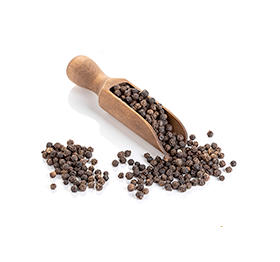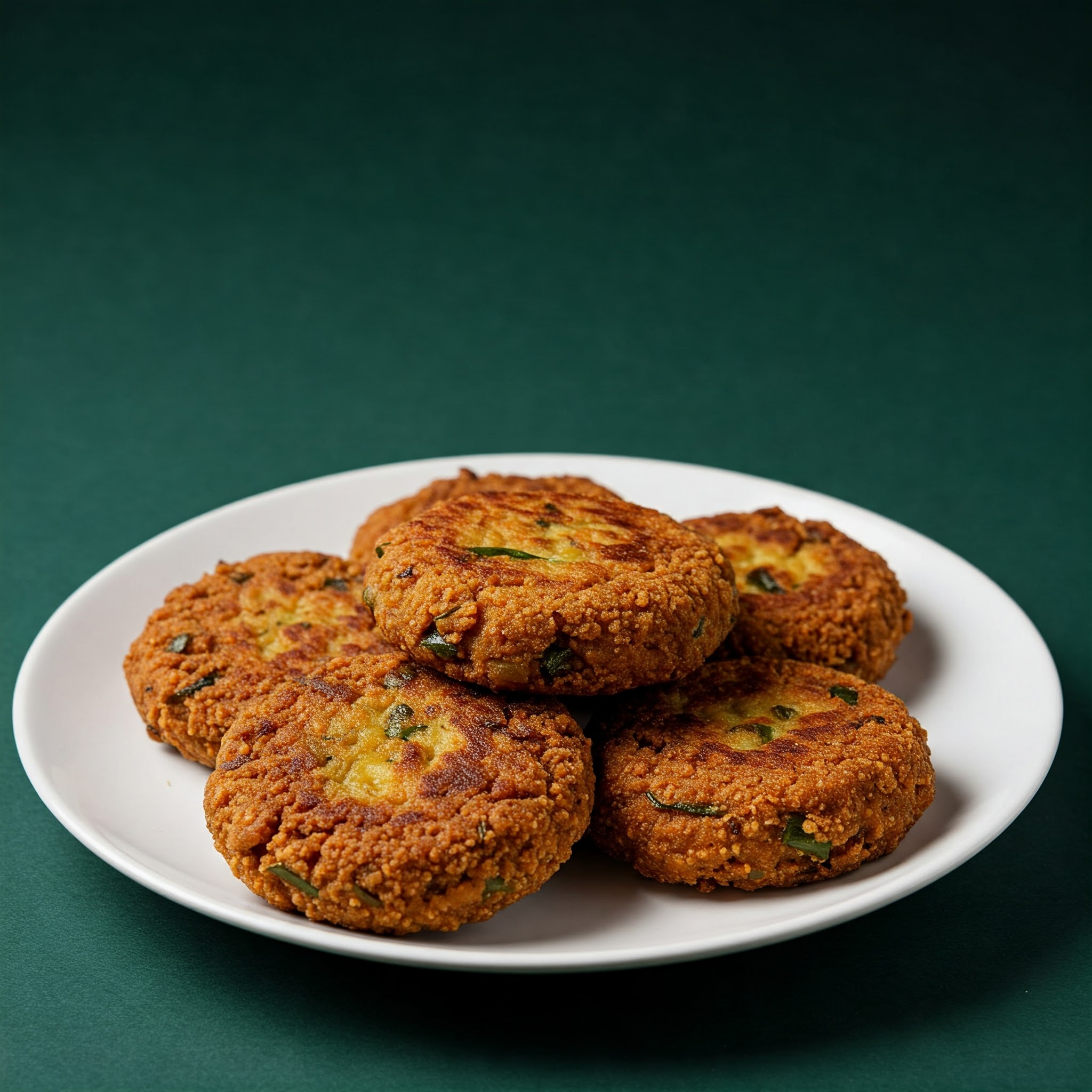Black Pepper (काली मिर्च)
Piper Nigrum, Kaalee Mirch, King of Spices

About Black Pepper
Black Pepper is the fruit, known as King of Spices which is used as spice and medicine. Black Pepper is one of the healing spice in Ayurveda, used in many ayurvedic medicines because of its cleansing and antioxidant characteristics. Black pepper also helps free flow of oxygen to brain, helps in digestion, maintaining respiratory system.
Here are some of the reason, which can encourage you to use Black Pepper in your daily diet.
- Support Weight loss efforts
- Helps in Treating Coughs and Colds
- Black Pepper helps in fighting Infection
- Support Brain function
- Anti Inflammatory
- Loaded with Antioxidants
- Absorption of Nutrients
- Prevention of Cardiovascular disease, Cancer
- Improves Skin (Vitiligo)
This Aromatic Black Pepper has been one of the most widely traded in the world. Black Pepper has manganese, iron, potassium, vitamin c, vitamin k and dietary fibre.
Eating large amount of black pepper may lead to some side effects like, burning sensation in the throat or stomach. Do consult with healthcare professionals OR Dietitian and use appropriate meal planning service. Which can give you balanced quantity of any spice.
In Ayurveda, black pepper is revered for its warming properties and digestive benefits. It is known to stimulate appetite, enhance nutrient absorption, and balance doshas, particularly Kapha. Additionally, it acts as a natural remedy for respiratory issues, promoting overall wellness and vitality.
How to Store Black Pepper
To store black pepper, keep it in a cool, dark place. Use an airtight container to prevent moisture and air from getting in. Whole peppercorns last longer than ground pepper, so it's best to keep them whole until you're ready to use them.
Shelf Life of Black Pepper
Black pepper has a shelf life of about 3 to 4 years when stored in a cool, dark place in an airtight container. Whole peppercorns last longer than ground pepper, which loses flavor more quickly.
How to Check Black Pepper Before Buying
When buying black pepper, check for whole, unbroken peppercorns that are firm and heavy. They should have a strong, aromatic scent. Avoid any that are discolored or have an off-putting smell, as this may indicate spoilage. It's advisable to buy in small quantities to ensure freshness, as black pepper can lose its flavor over time. If you find a reliable source and plan to use it frequently, procuring in bulk can be economical, but ensure you have proper storage to maintain its quality. Store in an airtight container in a cool, dark place.
Explore
Explore our services and take your business to the next level.
Recent Posts

Brinjal

Bajra Ladoo is a nutritious and delicious addition to your weekly meal plan. Mad...

Bajra Dosa is a wholesome and satisfying dish that makes a perfect addition to y...

Kuttu Cutlets are a flavorful, gluten-free snack, perfect for a balanced meal. P...

Shakkarkand Tikki is the perfect blend of taste and nutrition, making it an idea...
Ready for a Healthier You?
Take control of your wellness! Get a customized meal plan that fits your lifestyle. It's time to eat smarter, feel better, and transform your life!
Get Your Plan Now!Already a member? Login and start now!
Nutrition Facts
Serving Size:
Servings Per Container: 1
| Amount Per Serving | ||
|---|---|---|
| Calories | 216.53 | |
| Fat | ||
| Saturated Fat | ||
| Trans Fat | ||
| Cholesterol | 0 | |
| Sodium | 24.08 | |
| Carbs | 35.70 | |
| Fiber | ||
| Sugar | 25 | |
| Protein | 10 | |
| VitaminD | ||
| Calcium | 405 | |
| Iron | 11.91 | |
| Potassium | 1487 | |
* Percent Daily Values are based on a 2000 calorie diet.
* Percent Daily Values are based on a 2000 calorie diet.




